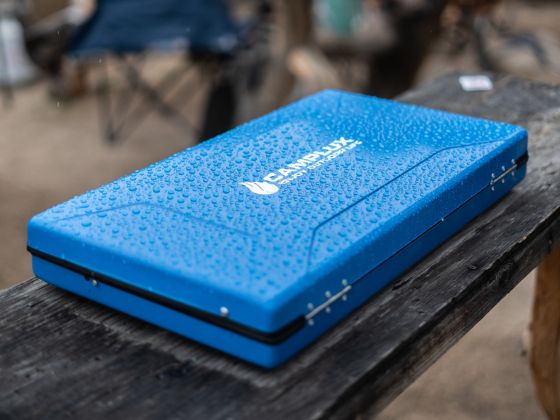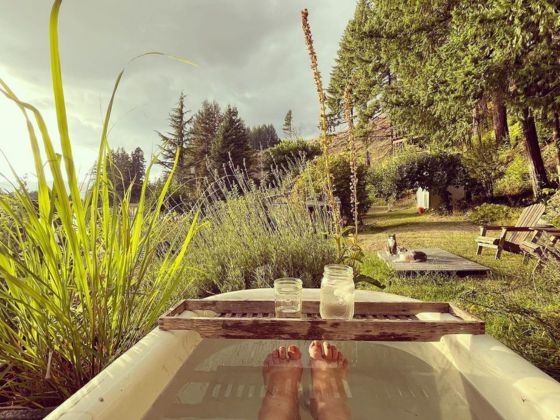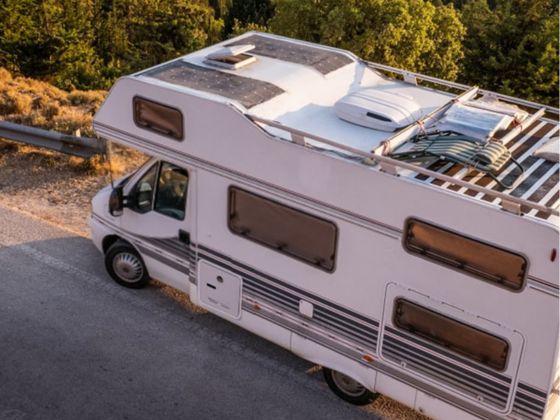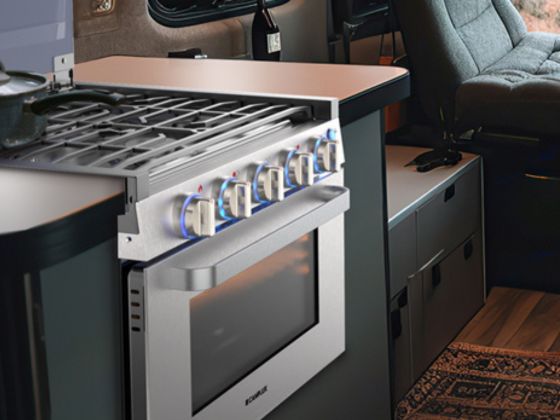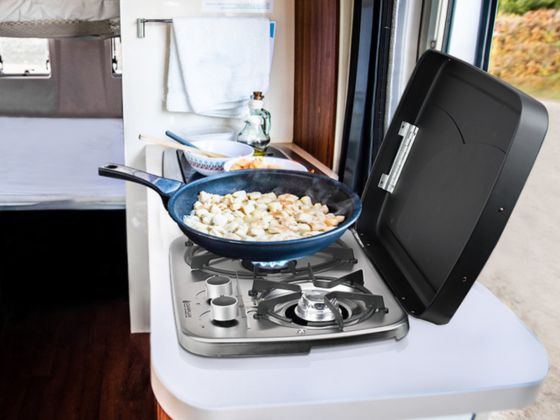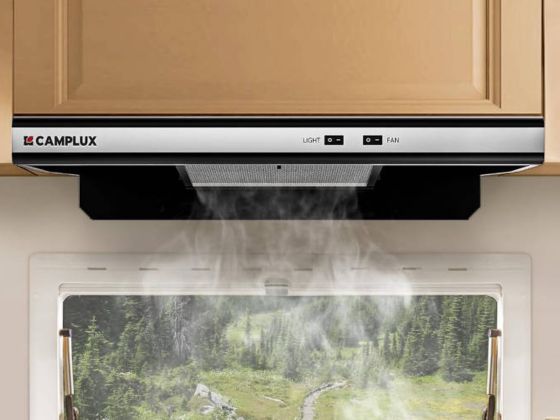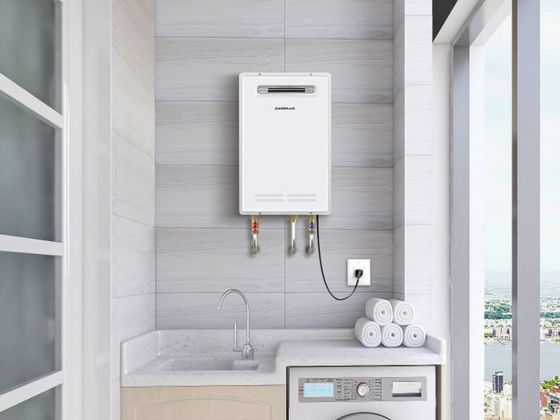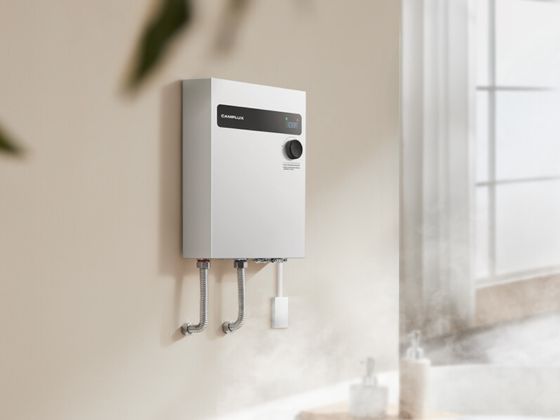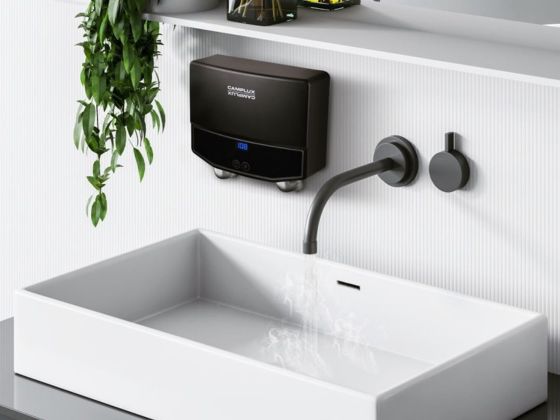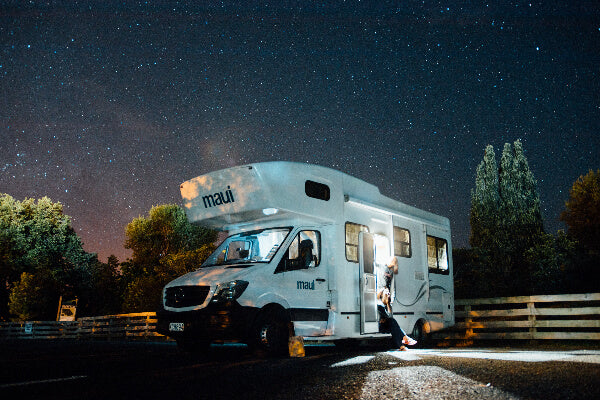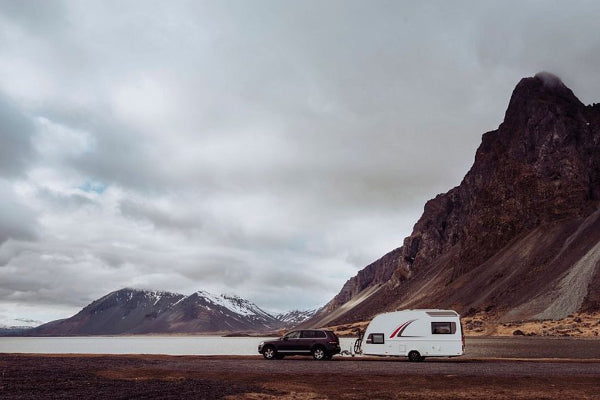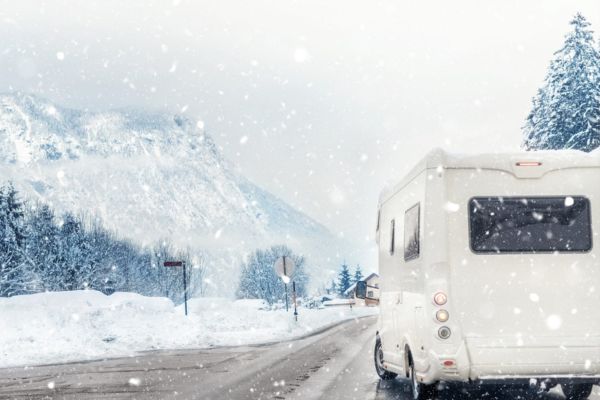RV water heaters are essential for providing hot water while on the road. Whether you're camping, traveling, or living in an RV, having a reliable water heater can greatly enhance your comfort and convenience. In this article, we will explore the different types of RV water heaters and discuss the key factors to consider when choosing one. We will also provide some installation and maintenance tips to help you keep your water heater in optimal condition. Read on to learn more!
Key Takeaways
- Tankless RV water heaters provide instant hot water and are more energy-efficient.
- Propane RV water heaters are popular for their fast heating capabilities and versatility.
- Electric RV water heaters are easy to install and operate, but may have limited hot water capacity.
- Hybrid RV water heaters combine the benefits of tankless and tank-style heaters for efficient and continuous hot water supply.
- When choosing an RV water heater, consider factors such as size, energy efficiency, installation requirements, and cost.
Why Do You Need an RV Water Heater?
Benefits of Having an RV Water Heater
Having an RV water heater offers several benefits for your camping and road trip adventures. Hot water is essential for various activities, such as showering, washing dishes, and doing laundry. With an RV water heater, you can enjoy the convenience of having hot water readily available wherever you go.
Additionally, having a reliable source of hot water allows you to maintain a level of comfort and cleanliness while on the road. No more cold showers or having to heat water manually. With an RV water heater, you can enjoy the luxury of a hot shower after a long day of outdoor activities.
To fully understand the advantages of having an RV water heater, let's take a look at some of the key benefits:
- Convenience: With an RV water heater, you don't have to rely on external sources for hot water. You have control over the temperature and can easily adjust it to your preference.
- Comfort: Hot water provides a level of comfort and relaxation, especially during colder seasons or in chilly camping locations.
- Time-saving: Having hot water readily available saves you time and effort, allowing you to focus on enjoying your trip rather than searching for alternative ways to heat water.
In conclusion, having an RV water heater enhances your camping experience by providing the convenience and comfort of hot water on the road. It allows you to enjoy your trip to the fullest without compromising on basic necessities like hygiene and cleanliness.
Convenience of Hot Water on the Road
Having hot water on the road can make your RV experience much more enjoyable. Whether you want to take a warm shower after a long day of hiking or wash dishes with hot water, an RV water heater provides the convenience you need. No more relying on cold water or heating it up on the stove. With an RV water heater, you can have hot water whenever you need it, making your camping trips more comfortable and convenient.
Types of RV Water Heaters

Tankless RV Water Heaters
Tankless RV water heaters are a popular choice among RV owners for their energy efficiency and space-saving design. Unlike traditional water heaters that store and heat a large amount of water, tankless water heaters heat water on demand, providing hot water instantly whenever you need it.
One of the main advantages of tankless RV water heaters is their endless hot water supply. Since they don't have a storage tank, you don't have to worry about running out of hot water during your shower or while doing the dishes.
Another benefit of tankless water heaters is their compact size. They are much smaller than traditional water heaters, which is especially important in RVs where space is limited. This allows for more storage space and flexibility in the layout of your RV.
When choosing a tankless RV water heater, it's important to consider the flow rate. The flow rate determines how much hot water the heater can provide at a given time. It's essential to choose a water heater with a flow rate that meets your needs to ensure a consistent supply of hot water.
Propane RV Water Heaters
Propane RV water heaters are a popular choice among RV owners for their efficient heating capabilities. These water heaters use propane gas to quickly heat up the water, providing hot water for showers, washing dishes, and other daily activities. They are especially beneficial for boondocking or camping in remote areas where electricity may not be readily available.
One of the advantages of propane RV water heaters is their fast recovery time. They can heat up a new batch of water quickly, allowing you to have continuous hot water without waiting for the tank to refill. This is particularly useful when multiple people need to use hot water consecutively.
When it comes to installation, propane RV water heaters are relatively easy to set up. They can be connected to the RV's propane supply and require minimal maintenance. However, it's important to ensure proper ventilation to prevent the buildup of carbon monoxide.
Here are some key features of propane RV water heaters:
| Feature | Description |
|---|---|
| Efficient Heating | Propane water heaters provide fast and efficient heating of water. |
| Compact Size | They are compact and space-saving, making them suitable for RVs with limited space. |
| Versatile Fuel Source | Propane is widely available, making it convenient for RVers to find fuel for their water heaters. |
Tip: It's recommended to keep a spare propane tank handy in case you run out of fuel during your travels.
In conclusion, propane RV water heaters offer a reliable and efficient solution for heating water in your RV. Whether you're camping off-grid or simply want the convenience of hot water on the road, a propane water heater is a great option to consider.
Electric RV Water Heaters
Electric RV water heaters are a popular choice among RV owners for their convenience and efficiency. These water heaters use electricity to heat the water, eliminating the need for propane or other fuel sources. Electric water heaters are known for their quick heating capabilities, allowing you to have hot water in no time. They are also relatively easy to install and maintain.
When choosing an electric RV water heater, there are a few factors to consider. First, you'll want to make sure the size and capacity of the water heater is suitable for your needs. A larger RV may require a higher capacity water heater to ensure an adequate supply of hot water.
Another important consideration is energy efficiency. Electric water heaters are generally more energy-efficient compared to propane or hybrid models. This means you can save on energy costs while still enjoying the benefits of hot water on the road.
Maintenance for electric RV water heaters is relatively straightforward. Regular cleaning and flushing of the tank is recommended to remove any sediment or mineral buildup. Additionally, it's important to check for any leaks and address them promptly to avoid water damage.
In colder climates, it's essential to winterize the water heater to prevent freezing and potential damage. This involves draining the water heater and adding antifreeze to the system. Following these maintenance tips will help ensure the longevity and optimal performance of your electric RV water heater.
In summary, electric RV water heaters offer convenience, efficiency, and quick heating capabilities. Consider the size and capacity, energy efficiency, and maintenance requirements when choosing an electric water heater for your RV.
Hybrid RV Water Heaters
Hybrid RV water heaters are a popular choice among RV owners who want the best of both worlds. These water heaters combine the benefits of both propane and electric systems, providing efficient and versatile hot water solutions.
One of the key advantages of hybrid RV water heaters is their flexibility. They can operate on either propane or electric power, allowing you to choose the most convenient option based on your camping location and available resources.
Energy efficiency is another notable feature of hybrid RV water heaters. By utilizing both propane and electric heating elements, these water heaters can optimize energy usage and reduce fuel consumption, ultimately saving you money in the long run.
If you're concerned about the installation and maintenance of a hybrid RV water heater, rest assured that they are designed to be user-friendly. With proper ventilation and regular cleaning, you can ensure the longevity and performance of your water heater.
In summary, hybrid RV water heaters offer the convenience of both propane and electric systems, energy efficiency, and ease of installation and maintenance. They are a versatile option for RV owners looking for reliable hot water solutions on the road.
Factors to Consider When Choosing an RV Water Heater

Size and Capacity
When choosing an RV water heater, one important factor to consider is the size and capacity. The size of the water heater will depend on the number of people using it and the amount of hot water needed. It's essential to choose a water heater that can meet your specific needs. Here are a few tips to help you determine the right size and capacity:
- Consider the number of people in your RV and their hot water usage habits.
- Calculate the average amount of hot water needed per person per day.
- Take into account any additional appliances or fixtures that require hot water.
Remember, having a water heater that is too small can lead to running out of hot water quickly, while a water heater that is too large can be inefficient and waste energy. Finding the right balance is key to ensuring a comfortable and convenient hot water supply during your RV adventures.
Energy Efficiency
When it comes to RV water heaters, energy efficiency is an important factor to consider. Saving energy not only helps reduce your carbon footprint, but it also saves you money on fuel or electricity costs. There are several ways to improve the energy efficiency of your RV water heater:
- Insulate your water heater: Adding insulation around your water heater can help retain heat and reduce energy loss.
- Use a timer: Installing a timer can allow you to schedule when your water heater operates, ensuring it only runs when you need hot water.
- Consider a tankless water heater: Tankless water heaters are known for their energy efficiency as they only heat water on demand, eliminating the need for a storage tank.
By implementing these energy-saving measures, you can enjoy hot water while minimizing energy consumption and maximizing your RV's efficiency.
Installation and Maintenance
Proper maintenance and installation are crucial for ensuring the longevity and efficient performance of your RV water heater. Here are some tips to keep in mind:
-
Proper Ventilation: Make sure your RV water heater is properly ventilated to prevent the buildup of harmful gases. This will also help maintain a consistent temperature.
-
Regular Cleaning and Flushing: Regularly clean and flush your RV water heater to remove sediment and mineral deposits. This will help maintain optimal performance and extend the lifespan of the heater.
-
Checking for Leaks: Periodically check for any leaks in your RV water heater. Leaks can lead to water damage and inefficient operation. If you notice any leaks, address them promptly.
-
Winterizing the Water Heater: Before winter, it's important to properly winterize your RV water heater to prevent freezing and potential damage. Follow the manufacturer's instructions or consult a professional for guidance.
Tip: When performing maintenance or installation tasks, always refer to the manufacturer's instructions for specific guidance and safety precautions.
Cost
When considering the cost of an RV water heater, it's important to factor in both the initial purchase price and the long-term operating costs. Price is a key consideration, as RV water heaters can range in price from a few hundred dollars to over a thousand dollars. However, it's also important to consider the energy efficiency of the water heater, as a more efficient model may have higher upfront costs but can save you money on fuel or electricity in the long run.
In addition to the purchase price, you should also consider the installation and maintenance costs. Some water heaters may require professional installation, which can add to the overall cost. It's also important to factor in the cost of regular maintenance, such as cleaning and flushing the tank.
To help you make an informed decision, here are some tips to consider:
- Compare the prices and energy efficiency ratings of different models.
- Consider the long-term savings potential of a more efficient water heater.
- Factor in the cost of installation and maintenance when calculating the overall cost.
Remember, while cost is an important factor, it's also important to consider the quality and features of the RV water heater to ensure it meets your needs and provides reliable hot water on the road.
Installation and Maintenance Tips for RV Water Heaters
Proper Ventilation
Proper ventilation is crucial for the safe operation of your RV water heater. Without adequate ventilation, harmful gases like carbon monoxide can build up inside the RV, posing a serious health risk. Make sure to follow these ventilation tips:
-
Keep vents clear: Ensure that the vents on your RV water heater are not blocked by any obstructions. This will allow for proper airflow and prevent the accumulation of gases.
-
Check for leaks: Regularly inspect the venting system for any leaks or damage. Leaks can compromise the effectiveness of the ventilation and should be addressed promptly.
-
Install a carbon monoxide detector: For added safety, consider installing a carbon monoxide detector in your RV. This device will alert you if there are high levels of carbon monoxide present, allowing you to take immediate action.
Remember, proper ventilation is essential for the efficient and safe operation of your RV water heater.
Regular Cleaning and Flushing
Regular cleaning and flushing of your RV water heater is essential to maintain its performance and prolong its lifespan. Here are some tips to help you keep your water heater in top shape:
-
Flush the tank regularly: Sediments and mineral deposits can build up in the tank over time, affecting the efficiency of the heater. Flushing the tank at least once a year can help remove these deposits and improve the heater's performance.
-
Use vinegar for cleaning: Vinegar is a natural and effective cleaner for removing mineral deposits. Mix equal parts vinegar and water, and use this solution to clean the tank and other components of the water heater.
Pro tip: Before cleaning the tank, make sure to turn off the power and gas supply to the water heater to prevent any accidents.
-
Check for leaks: Regularly inspect the water heater for any leaks or signs of damage. If you notice any leaks, it's important to address them promptly to avoid further issues.
-
Consider using an anode rod: An anode rod can help prevent corrosion inside the tank by attracting corrosive elements. Check the condition of the anode rod regularly and replace it if necessary.
-
Follow the manufacturer's instructions: Each RV water heater may have specific maintenance requirements. It's important to read and follow the manufacturer's instructions for cleaning and maintenance to ensure optimal performance and safety.
Remember, regular cleaning and maintenance of your RV water heater will not only ensure hot water on the road but also extend the life of your water heater.
Checking for Leaks
When it comes to RV water heaters, it's important to regularly check for leaks to ensure everything is functioning properly. Leaks can lead to wasted water and potential damage to your RV. Here are a few tips to help you check for leaks:
- Inspect all connections: Take a close look at all the connections in your water heater system, including the inlet and outlet pipes, as well as any valves or fittings. Look for any signs of water dripping or pooling around these areas.
- Check the pressure relief valve: The pressure relief valve is an important safety feature of your water heater. Make sure it is properly installed and functioning correctly. If you notice any water leaking from the valve, it may need to be replaced.
- Monitor water usage: Keep an eye on your water usage to see if there are any sudden increases or decreases. This could be a sign of a leak in your water heater system.
Remember, addressing leaks promptly can help prevent further damage and ensure your RV water heater continues to work efficiently.
Winterizing the Water Heater
Winterizing your RV water heater is an important step to protect it from freezing temperatures. Here are some tips to help you winterize your water heater:
-
Drain the water: Before winterizing, make sure to drain all the water from the water heater. This will prevent any remaining water from freezing and causing damage.
-
Insulate the tank: To provide extra protection, consider insulating the water heater tank. This can help to keep the water inside the tank from freezing.
-
Use antifreeze: Another option is to use antifreeze to protect the water heater. Follow the manufacturer's instructions on how to properly use antifreeze in your RV water heater.
Tip: It's important to properly winterize your RV water heater to avoid costly repairs and ensure it functions properly when you're ready to use it again.
Remember, taking the time to winterize your water heater can save you from potential headaches down the road.
Are you looking for installation and maintenance tips for RV water heaters? Look no further! At Camplux, we have you covered. Our website, Camplux.com, is your go-to source for top-rated tankless water heaters. Whether you're planning an outdoor adventure or need a tankless water heater for your RV, we have the perfect solution for you. With our portable water heaters, you can enjoy hot water in literally seconds, no matter where you are.
Conclusion
In conclusion, RV water heaters come in various types and offer different benefits. Whether you prefer the convenience of a tankless water heater or the reliability of a propane-powered one, there is an option that suits your needs. It's important to consider factors such as fuel source, capacity, and energy efficiency when choosing an RV water heater. Propane-powered water heaters are a popular choice due to their versatility and quick heating capabilities. Tankless water heaters are also gaining popularity for their space-saving design and on-demand hot water. Ultimately, the best RV water heater for you will depend on your specific requirements and preferences.
Frequently Asked Questions
1. How long does an RV water heater last?
The lifespan of an RV water heater can vary depending on the type and quality of the unit, as well as how well it is maintained. On average, a well-maintained RV water heater can last anywhere from 5 to 10 years.
2. Can I use my RV water heater while driving?
It is not recommended to use your RV water heater while driving, as it can be a safety hazard. The water in the tank can slosh around and cause instability in the vehicle. It is best to wait until you have reached your destination and are parked safely before using the water heater.
3. How long does it take for an RV water heater to heat up?
The time it takes for an RV water heater to heat up can vary depending on the type and size of the unit, as well as the temperature of the incoming water. On average, it can take anywhere from 10 to 30 minutes for the water to reach the desired temperature.
4. Can I use an RV water heater with both propane and electricity?
Yes, there are hybrid RV water heaters available that can be powered by both propane and electricity. These units offer the flexibility to choose the power source depending on your preferences and availability.
5. How do I winterize my RV water heater?
To winterize your RV water heater, you will need to drain and flush the tank, as well as bypass the water heater to prevent any water from entering and potentially freezing inside. It is recommended to use RV antifreeze to further protect the water system.
6. Can I replace my RV water heater myself?
While it is possible to replace an RV water heater yourself if you have the necessary knowledge and skills, it is generally recommended to have it done by a professional. This ensures proper installation and reduces the risk of any issues or damages.

